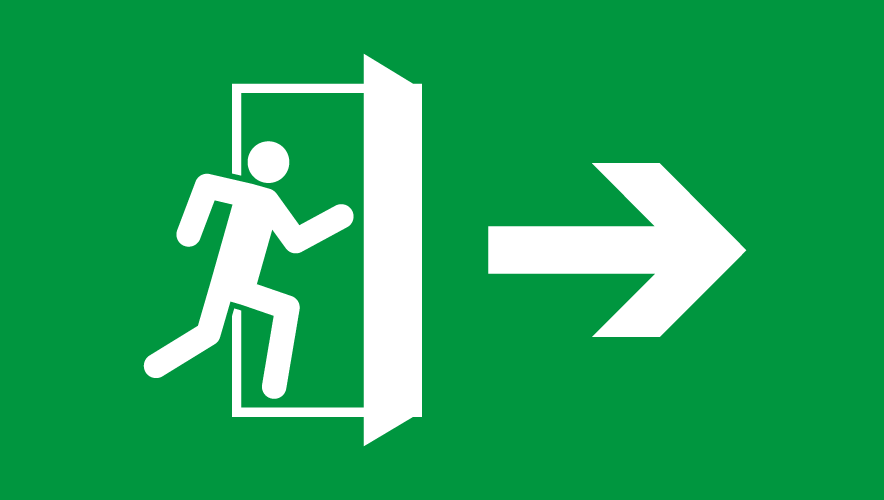Cannabis Security: A Field of Opportunity
 Emerging markets provide the chance for businesses to try something different and discover new opportunities. The developing cannabis industry is one such opportunity.
Emerging markets provide the chance for businesses to try something different and discover new opportunities. The developing cannabis industry is one such opportunity.
With cannabis, there is a rapidly growing market that creates a unique proposition for potential providers—ranging from the small independent firms to large supply chain organizations. The wide and varied product portfolio is especially attractive for new investors and cannabis enthusiasts alike.
But the laws regarding cannabis, from both a medicinal and recreational viewpoint, vary considerably from country to country. In Canada, cannabis has been legalized on all governing levels, resulting in clear guidelines for cultivation, production, sale, and use. In the United States, however, federal prohibition and state specific regulation create a complex set of obligations which can be a minefield for new startups looking to enter the industry, leaving many unprepared for the journey ahead. These pioneering startups have a significant, and very real, challenge: money. The initial stages of a young business require a pragmatic approach, placing the primary focus on the market offering. This means that many other concerns, like security, take a back seat until the business is established. For this reason, the risk appetite of smaller enterprises tends to be relatively high, in comparison to that of their larger counterparts. Cannabis regulation forces all industry participants to address security aspects and mitigate potential risk, however, taking up a considerable allocation of the initial capital investment
These pioneering startups have a significant, and very real, challenge: money. The initial stages of a young business require a pragmatic approach, placing the primary focus on the market offering. This means that many other concerns, like security, take a back seat until the business is established. For this reason, the risk appetite of smaller enterprises tends to be relatively high, in comparison to that of their larger counterparts. Cannabis regulation forces all industry participants to address security aspects and mitigate potential risk, however, taking up a considerable allocation of the initial capital investment
Location, Location, Location
In a bid to keep costs to a minimum, new companies may have to make compromises on real estate choices. Areas that require development, are subject to social unrest, or require economic expenditure can be attractive to startups due to their relatively low-price card. But these locations introduce additional threats and risks that might otherwise be avoided and may actually increase the need for physical security. Fortunately, many security professionals do not shy from a challenge and a solution can invariably be found. A threat assessment of the location, including relevant crime data reports, and application of standards and guidelines, is considered best practice among experienced security practitioners.
As is often the case, entrepreneurs may focus on location selection, operational renovations, and aesthetics, as the first step in realizing their new venture. This can be counterproductive because there are considerable legal requirements that need to be satisfied before a business receives a license to operate. Involving security experts from the outset can help to guide business decisions and form holistic solutions, avoiding the need for compromise, unnecessary cost, or unwieldly security implementations. Individual locales may require a percentage of the revenues to be paid in taxes to gain the zoning variance required for their business to operate.
Additionally, locales may choose to implement security requirements not found in state law. For instance, Saint Louis County, in Missouri, requires twice the amount of video archive retention than required by the state’s medical cannabis program.
Security Requirements
While each industry has security requirements that are particular to the domain, the cannabis industry has a couple of rather demanding constraints. Currently, in the United States, there are strict requirements with respect to video coverage. Any area which stores cannabis product, or through which the product is transported, needs to have 100 percent video coverage. This obligation can have a serious impact on the interior design and architectural choices, especially where these result in the obstruction or restriction of sight. In cases where the building design is already fixed or implemented, the logical solution is to install more cameras. Consequentially, this results in a cost increase from an implementation, operational, and maintenance viewpoint. Furthermore, a non-operational camera can result in a suspension of business operations due to non-compliance, requiring supplementary, redundant cameras to guarantee business continuity.
An additional concern addresses the issue of authorization. Medical cannabis businesses require patients to register with the regulating authority and patient cards are issued for identification and purchase quantity tracking purposes. In Illinois, all cultivation center visitors need to be pre-approved, by the regulating authority, and business owners should, at all times, know exactly who is on the premises. Everyone must be vetted, using an identification check, upon site entry. This does not only apply to external agents and commercial partners, but also company employees. This may seem unnecessary for a workforce that have built up a solid relationship and co-operate with the same staff every day. But the rules are clear, and the vetting process needs to be applied thoroughly and consistently. Company employees and, in many U.S. states, external parties need to be able to display a valid agent card, allocated by the state regulatory agency to be on the premises.
In a retail dispensary setting, even the customers undergo an identification check.
In a retail dispensary setting, even the customers undergo an identification check, with the goal of ensuring that they meet the minimum age requirement of 21 years of age. Everyone entering the dispensary must present their state-issued identification for validation, similar to the type of checks performed in a bar or nightclub. The transformational status of the industry means that it is currently, largely unbanked. Although the financial world is aware of the undeveloped market, cannabis opponents are slowing the adoption, forcing businesses to work primarily with cash. The daily sales for a typical dispensary are sizable. Combining this fact with operational procedures, such as payroll and supplier payments, means that there is considerable cash on site, at all times, generating a significant risk for armed robbery. To address this type of threat, TL30 rated safes and fortified, secure, storage rooms and vaults can be used for cash storage. The amount of cash available at a Point of Sale (POS) can be limited via the use of time-delayed, smart safes, and electronic payment methods.
Employee Recruitment
A rather interesting dichotomy arises for cannabis businesses searching for senior or experienced employees. Proficiency in cultivation may be less of an issue, as this can be justified by an education and career in horticultural and botanical fields. However, adept employees for the manufacturing and production processes could present a predicament. It may be possible to find experts and skilled personnel, but the problem arises when hiring for operations or practices that have, until recently, been categorized as illegal. Verification of an applicant’s expertise is difficult, if gained in an illegal market. Applicants may have been arrested, convicted, and even jailed for their involvement in the industry. This challenge is further compounded when faced with the application of pre-employment, background screening, and vetting. While the recruitment process is already complicated with aspects such as equality, diversity, and inclusion, these aspects add an ethical dilemma into the mix.
Despite this complication, many U.S. companies perform a background check, following standards and guidelines, prior to employment. This is a check that is performed on both a state and federal level, which on first inspection, sounds reassuring.
Unfortunately, the availability of rapid, or cheap, background checks can result in incomplete or inaccurate information. A simple check often only reports convictions which, when searching for employees with a specific profile, may provide misleading information and result in incorrect conclusions. Many organizations forgo conducting a proper preemployment background screening and vetting of potential employees because the application process for an agent card includes a criminal history check by both state and federal agencies
Perception Problems
One of the most unique, and perhaps controversial challenges of the cannabis industry, is the issue of perception. There are many proponents that endorse the positive effects of cannabis and, conversely, there is opposition that focuses on the potential negative aspects of cannabis.
Criminalization has created a perception that cannabis use is directly associated with drug addicts littering the streets, plunging real estate value for areas supporting retail outlets, or gun toting drug cartels controlling manufacturing and production facilities, to name but a few. This perception has a very real effect on the industry. One such example is personified by townspeople who disapprove of a dispensary in the neighborhood and voice objections, based on unfounded fears, at zoning hearings, to block approval and, thus, preventing the dispensary from operating.
Cultural changes take time and effort. It is worth noting that for an emerging market, there are substantial risks to be considered and the hurdle of perception is not one to be taken lightly. Given that businesses need to make an appreciable investment to enter the market, this may be one risk too far for some of the smaller enterprises, leaving the field wide open for the larger, more resilient players.
Tim Sutton, CPP, PSP, CHPA, has been a security practitioner for more than 35 years. He has worked as a security director for two multi-state operators with cannabis operations across the United States. As a senior consultant and cannabis practice leader at Guidepost Solutions LLC, he has worked with and authored security content and security plans for license applications in more than 15 U.S. states. Sutton is well known within the cannabis industry as the go-to cannabis security expert.
Linda Howson, PSP, is a physical security research and development engineer. Based in The Netherlands, she is part of an innovation team that is actively working with the security industry to develop future solutions for security professionals.












